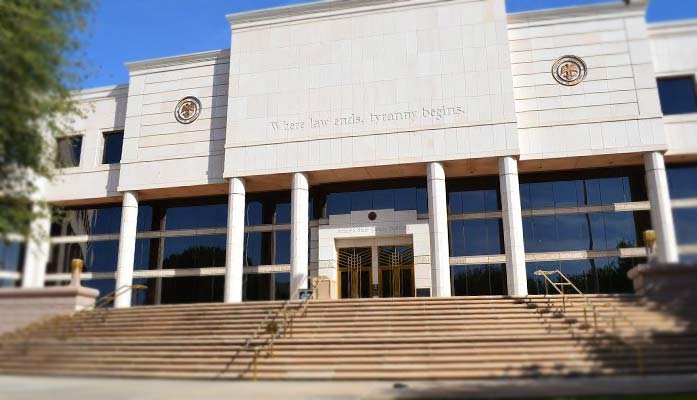Arizona Free Enterprise Club
Arizona Supreme Court Shocks Nation with Game-Changing Prop 140 Decision

By Daniel Stefanski |
The Arizona Supreme Court has cleared the way for voters to consider Proposition 140 during the upcoming November General Election, a pivotal measure aimed at reforming the state’s election system. This follows a protracted legal battle that culminated in the court dismissing a challenge to the proposition, commonly known as the Make Elections Fair Arizona Act. The justices unanimously supported the ruling, releasing a brief decision order, with a more detailed explanation expected later.
The Arizona Free Enterprise Club, which initiated the challenge, expressed disappointment in the court’s ruling. President Scot Mussi argued that the organization demonstrated that the proposition’s supporters did not gather sufficient valid signatures to qualify for the ballot. He criticized the committee behind Prop 140 for allegedly delaying the signature verification process while aware of numerous duplicates.
In contrast, Sarah Smallhouse, Chairperson of the Make Elections Fair Committee, expressed elation regarding the court’s decision. “We’re excited to ensure that all Arizonans can move past partisan primaries toward open primaries,” she stated. Chuck Coughlin, the campaign treasurer, emphasized that the ruling upheld electoral integrity, protecting voter rights against what he termed “misleading tactics” employed by opponents.
If Proposition 140 is approved, it aims to enact several key changes to Arizona’s electoral landscape. The measure would eliminate taxpayer funding for partisan elections, mandate that all candidates appear on the same ballot, standardize signature requirements, and facilitate broader voter participation in elections.
Conversely, the Arizona Free Enterprise Club has raised concerns about the implications of Prop 140. A recent press release highlighted that the measure could lead to potential manipulation by the Secretary of State in determining candidate qualifications for general elections. Furthermore, they argue it may result in ballots dominated by candidates from a single party, complicated voting processes, and increased chances of tallying errors.
Political parties in Arizona are taking stances on the proposition. The Republican Party of Arizona has launched an initiative against it, framing Prop 140 as a misleading ranked-choice voting measure that could jeopardize the state’s electoral framework. They are urging constituents to support the “No on Prop 140” campaign. Similarly, the Arizona Libertarian Party echoed these sentiments, asserting that approval of the measure might hinder third-party and independent candidates.
The outcome of Proposition 140 will be consequential, as it directly impacts how elections are conducted in Arizona. Voters will have the ultimate say on whether to adopt the proposed reforms in just a few weeks.


















